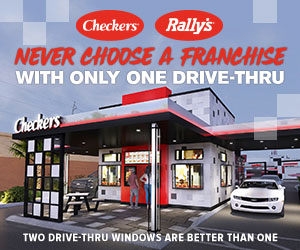Does It Matter How You Own Your Franchise?
A State of Washington Appellate Court ruling (Marte v. Hernandez, May 16, 2011) demonstrates that deception can cause even blood relationships to disintegrate.
In this case, two brothers formed a partnership and purchased two McDonald's franchises. McDonald's does not sell franchises to partnerships. It sells franchises only to individuals or to entities wholly owned by an individual (both the equity interests and any interests in profits). To avoid McDonald's requirements, only one of the brothers applied to McDonald's as a franchisee, while the other was a financial investor and partner providing a portion of the money needed to purchase the franchise and fund the initial operating costs. The brothers concealed the existence of the partnership and further misrepresented the purpose of the investor brother's financial contributions to the partnership.
The brother listed as the franchisee died about a year after the business began. The investor brother filed a claim against the deceased's estate, arguing that he had an interest in the partnership. The estate rejected his claim and the investor brother then filed suit.
The Appellate Court concluded that the partnership was unlawful and any agreement between the brothers with respect to the partnership was unenforceable because it violated a Washington securities statute that makes it unlawful for any person to engage in any act that operates as a fraud upon another person, when the act is in connection with the sale or purchase of any security. The investor brother argued that his acquisition of the partnership interest was not a security and that the securities statute did not apply. The court reasoned that this argument was not persuasive because the investor brother supplied funding but depended on the other brother's managerial efforts.
The court further held that even if the partnership did not amount to a security, the brothers violated the Washington Franchise Investment Protection Act, which prohibits using a scheme to defraud or engage in any act that operates as a fraud upon any person. The brothers committed fraud upon McDonald's when they intentionally concealed the existence of the partnership and listed only one of the brothers as the franchisee, and this fraud rendered the partnership unlawful. As a result, the court refused to enforce the partnership agreement between the brothers, and the investor brother lost his investment and his claim to ownership of the franchise. Further, while not discussed in the case, the deceit by the brothers almost certainly gave McDonald's the right to terminate the franchise agreement with the deceased brother.
Franchisors are careful to set forth guidelines as to how a franchise may be owned. Great detail is described in the Franchise Disclosure Document (FDD) and in the franchise agreement. Pay attention to these important documents and seek advice on how to own your franchise because, as evidenced by Marte, the ownership structure of the franchisee is a very important initial step to consider. Properly structuring the ownership of the franchisee should not be done in a haphazard fashion or with the thought that it can easily be changed in the future.
Once the owner of a franchise is established, the franchisor will most likely have policies that restrict or prohibit the transfer of an interest in the franchise to another party. Franchisees may wish to gift interests to family members or transfer to trusts established for estate planning purposes. Each of these transfers may be subject to the franchisor's review and approval.
The bottom line is that the ownership structure of a franchisee is subject to the rules and procedures that the franchisor sets forth; and those provisions must be understood and dealt with at the time the franchise is purchased and throughout the ownership of the franchise. If the franchise is not owned in the proper manner or if attempts are made to transfer it, the franchisor has the right to object and may terminate the franchise if proper approval is not obtained.
As this case demonstrates, not only the franchisor has an interest as to how the franchise is owned and titled, but so do the other purported owners of the franchise. Attempts to cut corners or conceal the truth in hopes of not getting caught are very risky, and you may find yourself on the outside looking in, having lost your investment of time, money, and effort.
Richard S. Mulligan is a partner in the Columbus, Ohio office of Roetzel & Andress and represents franchisors and franchisees in his business practice. Contact him at 614-723-2035.
Katy Wiles, an associate of Roetzel & Andress, assisted with this article.
Share this Feature
Recommended Reading:
FRANCHISE TOPICS
- Multi-Unit Franchising
- Get Started in Franchising
- Franchise Growth
- Franchise Operations
- Open New Units
- Franchise Leadership
- Franchise Marketing
- Technology
- Franchise Law
- Franchise Awards
- Franchise Rankings
- Franchise Trends
- Franchise Development
- Featured Franchise Stories






 The franchise legal listed above are not related to or endorsed by Franchise Law News or Franchise Update Media Group. We are not engaged in, supporting, or endorsing any specific franchise, business opportunity, company or individual. No statement in this site is to be construed as a recommendation. We encourage prospective franchise buyers to perform extensive due diligence when considering a franchise opportunity.
The franchise legal listed above are not related to or endorsed by Franchise Law News or Franchise Update Media Group. We are not engaged in, supporting, or endorsing any specific franchise, business opportunity, company or individual. No statement in this site is to be construed as a recommendation. We encourage prospective franchise buyers to perform extensive due diligence when considering a franchise opportunity.